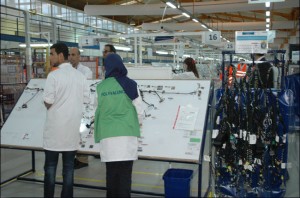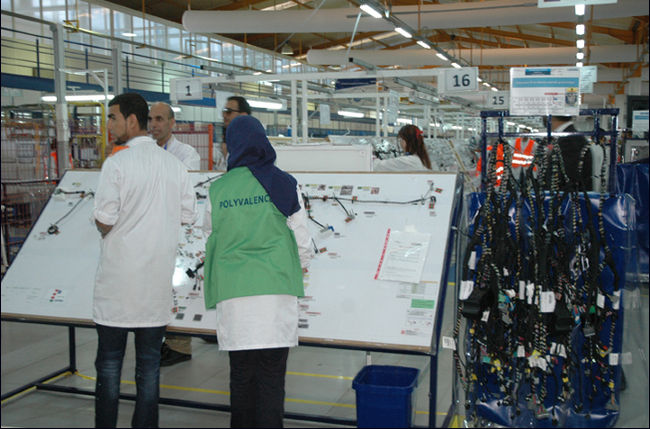By Hassan Benmehdi in Casablanca
for Magharebia

Under the new law, workers in Morocco who lose their jobs are entitled to receive 70% of their average monthly wage from the previous 36 months.
A long-awaited law provides compensation for the jobless.
Unemployed private-sector workers in Morocco now have a safety net in Morocco.
After 12 years of negotiations, the Job Loss Allowance (IPE) law went into effect on December 1st.
Employment Minister Abdeselam Seddiki told Magharebia that the IPE would be paid for through an initial fund of 500 million dirhams set up by the government for three years.
“It’s a start that the government will try to improve on over time, but our aim is to get all workers who lose their jobs back into work,” he said. “That’s why those in receipt of the allowance must be registered with ANAPEC [National Agency for the Promotion of Employment and Skills] so that they can receive guidance and training to help them get back to work.”
The IPE is equal to 70% of a worker’s declared average monthly wage over the 36 months prior to the date when they lost their job. The amount cannot exceed the statutory minimum wage, which is just over 230 euros per month.
“Resignation, voluntary departure or abandonment of one’s post do not entitle anyone to receive this allowance, which protects entitlement to medical insurance for both the unemployed worker and his legal successors and preserves the right to family allowances and pensions,” according to Said Ahmidouch, the head of the National Social Security Fund (CNSS).
Mohamed Alaoui, a member of the Moroccan Labour Union (UMT), said the allowance was a step forward but fell somewhat short of workers’ expectations.
“We mustn’t forget that employees are a big issue in Morocco, especially since 80% of employees are not declared and do not benefit from medical insurance or pensions… That’s why we’re asking the government to do more to protect the rights of Moroccan employees,” he said.
Hicham Zouanat highlighted how important this measure would be for employers.
“Through this new welfare benefit, Morocco is for the first time complying with the international convention on employment, and we will do our best to help make sure this experiment is a success,” he said.
According to Jamal Belahrach, the vice president of the General Confederation of Moroccan Businesses (CGEM), the allowance would encourage the labour market to become more flexible.
Workers also voiced support for the new plan.
Najat Imlahi, an assistant for a company, said the IPE offered “peace of mind in addition to the money”.
“It’s better than nothing” was how Abdellah Fahmaoui, a courier for an insurance company, preferred to sum it up.
According to the High Commission for Planning, there are approximately 3.6 million private-sector employees in Morocco, but the number of people required to pay into the CNSS – who are the only people entitled to receive the IPE – is just 2.9 million.
Just 59% of Moroccans have state medical insurance and only 33% pay into state pensions, according to the HCP. The agency noted the lack of a social security system for self-employed people, who make up over 55% of the workforce and numbered more than 10.63 million at the end of 2013.







